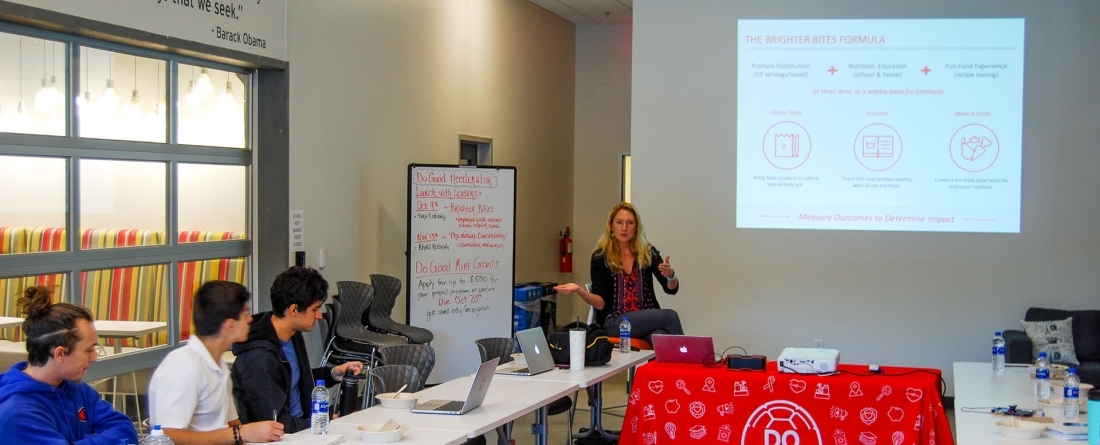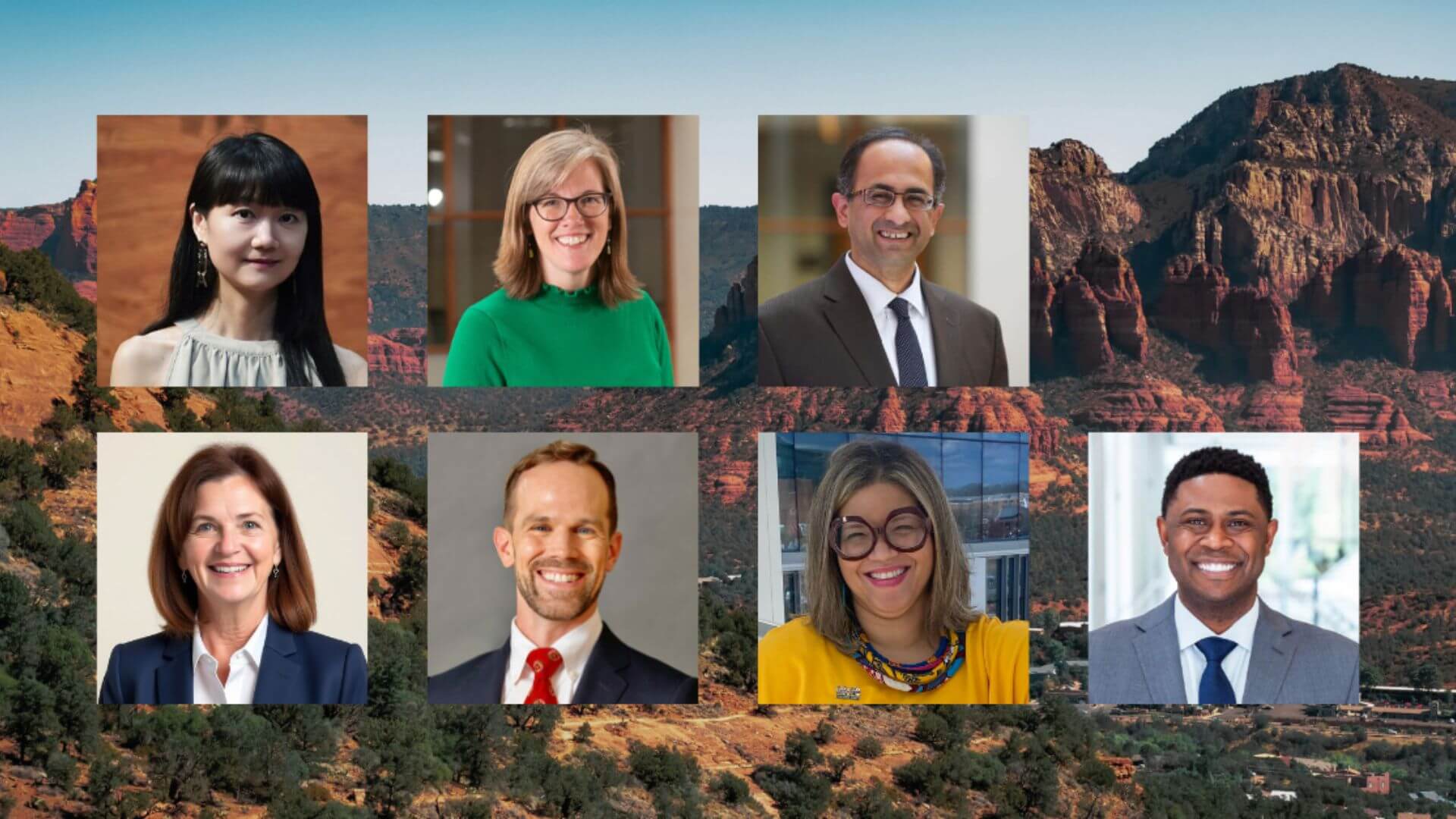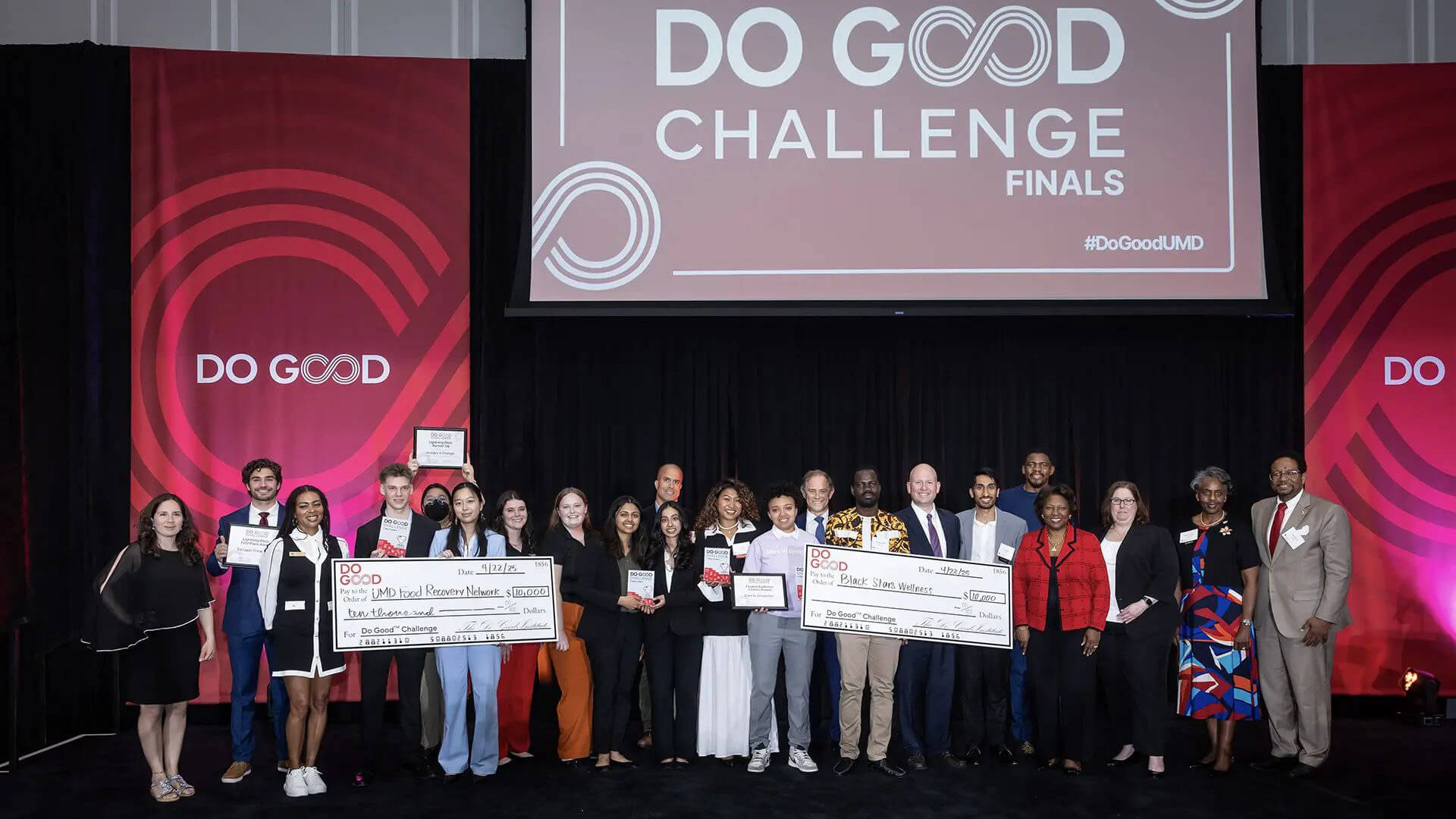
Lunch With Leaders Connects UMD Community to Brighter Bites
On October 9, 2019 students gathered in the Do Good Accelerator to learn from Tara McNerney, Program Director of Brighter Bites, as part of Do Good’s Lunch with Leaders series. Lunch with Leaders allows members of the UMD community to sit down and speak with leaders from local nonprofits who are tackling today's biggest issues. Tara from Brighter Bites was one of those leaders; and students, staff, and faculty gathered to hear her talk about her work creating healthy futures for families.
Tara has spent her career studying sustainability and noted that from the time she was a child, she knew she loved nature and wanted to do her part to protect it. With a passion for food, food justice, and sustainability, Tara helped start the D.C./Maryland chapter of Brighter Bites, and is now the leading Program Director. Founded in Texas, Brighter Bites is a nonprofit that works across the United States to create communities of health through fresh food. Using a comprehensive program, Brighter Bites brings fresh produce to local families, facilitates nutrition education, and provides a sense of community founded on health and well-being.
Three in 10 children in the U.S. are overweight or obese, which Tara noted can lead to a multitude of health issues. Childhood obesity is not an isolated issue and filters into every aspect of a child’s life. This adds numerous layers of complexity to the issue, but Brighter Bites is determined to provide comprehensive care and lasting solutions to the communities they work with.
To make the most impact, Brighter Bites has created a three tiered program, based off of expert knowledge in the fields of nutrition and educations. The organization’s three core initiatives include:
- An intentional model of distribution based on behavioral research that supplies families with fresh produce once a week for eight weeks at a time;
- Creative education for elementary school students at their partner schools, which focus on using the week’s produce in local teachers’ curriculum; and
- Distribution made “fun” each week – where the handing out of produce bags isn’t merely a quick pick up, but rather a trip filled with fun games and food samples.
These intentional and research backed initiatives can be seen in action across Maryland, as Brighter Bites works in five schools around the D.C. metro area. They operate out of elementary schools and work with parents, teachers, and school administrators to make their program happen. Once a week, you can find parents volunteering to pack and handout bags, teachers and principals bringing home fresh produce to teach with, and Brighter Bites staff giving out temporary tattoos and recipe samplings. The entire community comes together in the effort, which is crucial to the program’s success.
Tara noted that Brighter Bites works hard to distinguish themselves from other food programs, as they provide much more than a typical food handout and work hard to measure their success with data. As families partake in the program, Brighter Bites measures their programs’ effectiveness by noting what families are attending regularly, and ultimately shifting their habits.
As students listened in and learned, many connected Brighter Bites work to their own initiatives and asked questions about reporting on impact, the importance of nutrition, and even connected Brighter Bites’ work to Maryland’s own dining options on campus. Everyone left the lunch with new knowledge, and new ideas about how to Do Good.
Interested in learning more? Brighter Bites is always looking for volunteers and interns! Read more about getting involved here.
You can also join us for our next lunch! Interested in social impact and learning from trailblazers? Register for our next Lunch with Leaders here. Kahlil Kettering (’15) from The Nature Conservancy will be leading a conversation about storm water retention, green infrastructure, conservation, and more on Wednesday, November 13 from 11:30 a.m. to 1:00 p.m. in the Do Good Accelerator. Come deepen your understanding about relevant social issues, learn about why these issues exist, and ask questions that will enable you to think of new and innovative approaches to them.



